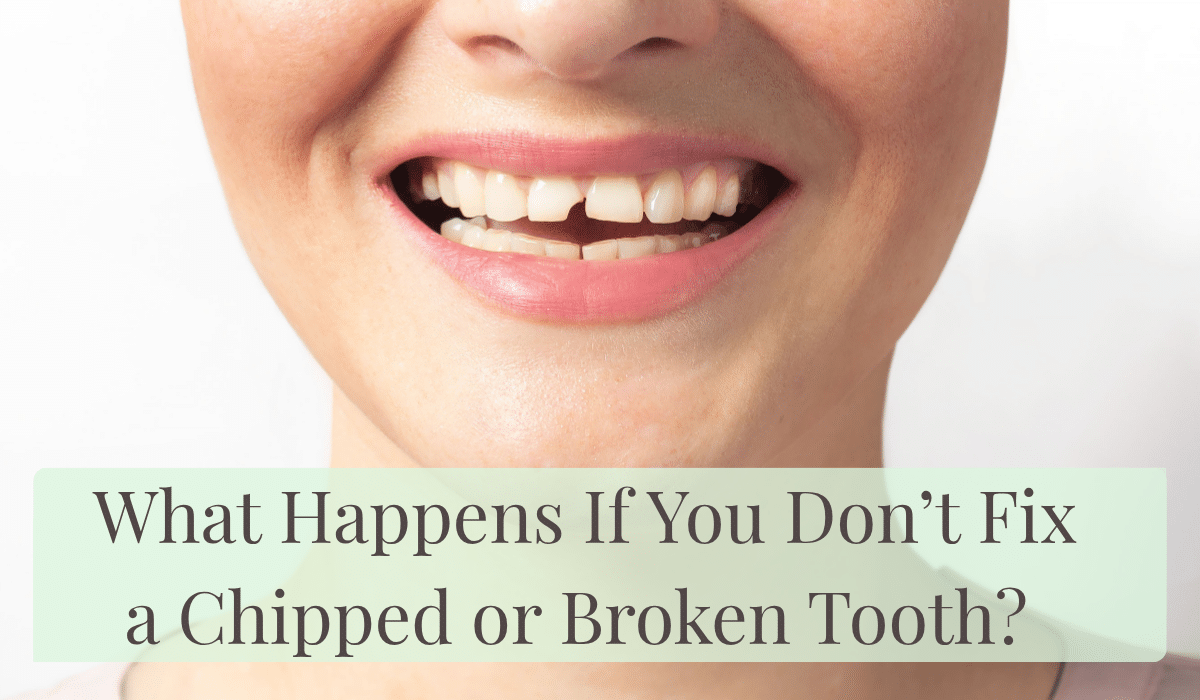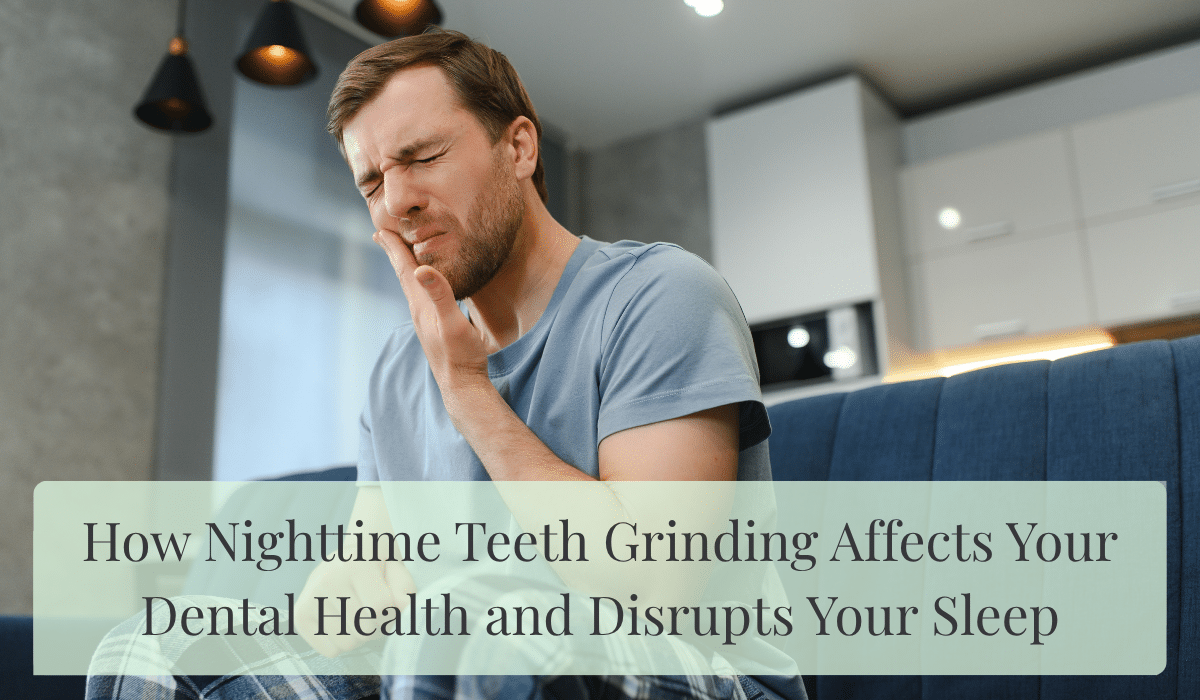Chipped and broken teeth are among the most common reasons for scheduling emergency dental care, but some people put off treatment even when the damage is severe enough to cause additional complications. For example, if you don’t fix a chipped or broken tooth, you may have to deal with the following:
- Worsening pain and tooth sensitivity
- Additional damage to the tooth and surrounding tissues
- A deeper infection inside the tooth when the pulp is also damaged
- Tooth decay
- Potential tooth loss
- Aesthetic issues
Not all chipped or broken teeth will result in the above complications, but it’s impossible to know without scheduling an appointment with your Kingwood dentist. A reputable dentist will be able to identify the extent of the tooth’s damage and determine what steps should be taken to protect it from further damage.
Why is it Important to See a Dentist if Your Tooth is Chipped or Broken?
Chipped teeth are extremely common, and they range in severity. Minor chips typically do not require extensive work, and your dentist may choose to file the jagged edge left behind or place a dermal bond to protect the tooth.
However, if it’s a severe chip or break, your tooth may require additional treatment to prevent further problems, which may include:
- Worsening pain and tooth sensitivity – If the dental pulp is exposed, it’s likely to cause ongoing pain that may get worse, especially if the pulp becomes infected. Sensitivity to heat or cold may also be present.
- Additional damage to the tooth and nearby tissues – If the chipped or broken tooth is subjected to intense biting or grinding stresses, it can cause additional chips or cracks in the tooth, which will then need to be addressed.
- A deep tooth infection – Severe chips or breaks will likely reach the tooth’s deeper tissues, including the pulp. This can introduce bacteria to the tooth’s interior and cause a painful infection that can only be resolved through a root canal.
- Tooth decay and loss – A chipped or broken tooth may be harder to clean and allow bacteria to eat away at the tooth enamel without stopping. This can lead to rapid tooth decay, which will threaten the entire tooth’s structure if left unresolved.
- Appearance issues – Whether the chip in the tooth is minor or severe, it can noticeably affect how the tooth looks. This can lead to confidence issues, especially if the chipped tooth is clearly visible when talking or eating.
- Worsening pain and tooth sensitivity – If the dental pulp is exposed, it’s likely to cause ongoing pain that may get worse, especially if the pulp becomes infected. Sensitivity to heat or cold may also be present.
What Are the Treatment Options for a Chipped or Broken Tooth?
If the chip is minor and hasn’t affected the tooth’s pulp, your dentist will likely recommend a non-intensive form of treatment. This could be as simple as filing the broken edge down to prevent it from cutting your mouth.
However, if the chip or break is severe enough to reach the tooth pulp, additional treatment will likely be required, which may include:
- Root canal – If the chipped tooth’s pulp is exposed due to damage, then you’ll need a root canal before additional work can be completed. During a root canal, your dentist will clean out the tooth’s interior and seal it up to prevent infection or decay. Once the root canal is complete, the tooth can be protected long term (typically with a crown).
- Bonding and fillings – For minor chips, your dentist may opt to fill in the chip or break, either using a bonding material or a traditional filling to restore the tooth’s function and appearance. Bonding and fillings may also be recommended for younger patients who are still developing. When the patient is old enough, a crown may be placed on the tooth to provide a permanent solution.
- Veneers – Dental veneers are porcelain shells that fit over the front of chipped, broken or discolored teeth. Although primarily intended for cosmetic purposes, dental veneers also provide modest protection against further damage and therefore may be recommended for minor chips.
- Crowns – Crowns are reserved for severely chipped or broken teeth. They fit over the existing tooth and provide a permanent replacement for the portion of the tooth above the gum. Your dentist may wait to install a crown if the patient is too young, but it will be recommended when they are old enough, as crowns are the most reliable way to fully protect a damaged tooth.
- Root canal – If the chipped tooth’s pulp is exposed due to damage, then you’ll need a root canal before additional work can be completed. During a root canal, your dentist will clean out the tooth’s interior and seal it up to prevent infection or decay. Once the root canal is complete, the tooth can be protected long term (typically with a crown).
What Are the Risk Factors for Chipped or Broken Teeth?
Some people are more likely to experience chipped or broken teeth. Some of the most common risk factors include:
- Age – people 50 and over are more likely to chip or break a tooth.
- Certain behaviors – playing contact sports, eating hard foods and grinding your teeth are all more likely to cause chips or other forms of damage.
- Poor dental health – Tooth decay and cavities will increase the risk of chipping a tooth.
- Dietary factors – Eating a lot of acidic or surgery foods will weaken the tooth’s enamel.
- Health conditions – Gastroesophageal reflux disease (GERD) can cause acid to back up into the oral cavity and damage tooth enamel.
- Other dental work – Although dental treatment is frequently necessary to protect your oral health, it can increase the risk of chipping a tooth. Large fillings are an example.
Dealing with a Chipped or Broken Tooth? Your Kingwood Dentist Can Help Restore its Function and Appearance
Although a chipped or broken tooth may not result in further complications, it’s impossible to know until your dentist has examined the damage. Even minor chips should be looked at, as the damage may worsen with typical biting and chewing forces. If you’re experiencing pain or noticeable signs of inflammation, then you should schedule an examination as soon as possible to protect your overall oral health.
Fortunately, no matter the extent of your tooth’s damage, a reputable Kingwood dentist can provide a solution designed to restore its appearance and integrity. Make an appointment today so your chipped or broken tooth doesn’t have a chance to progress to something more serious.
- How Can Cosmetic Dentistry Improve More Than Just Your Appearance? - December 5, 2025
- How to Choose the Best Shade for Veneers - October 8, 2025
- How Your Dentist Plans a Smile Makeover: Step-by-Step Guide to Your New Smile - September 2, 2025




